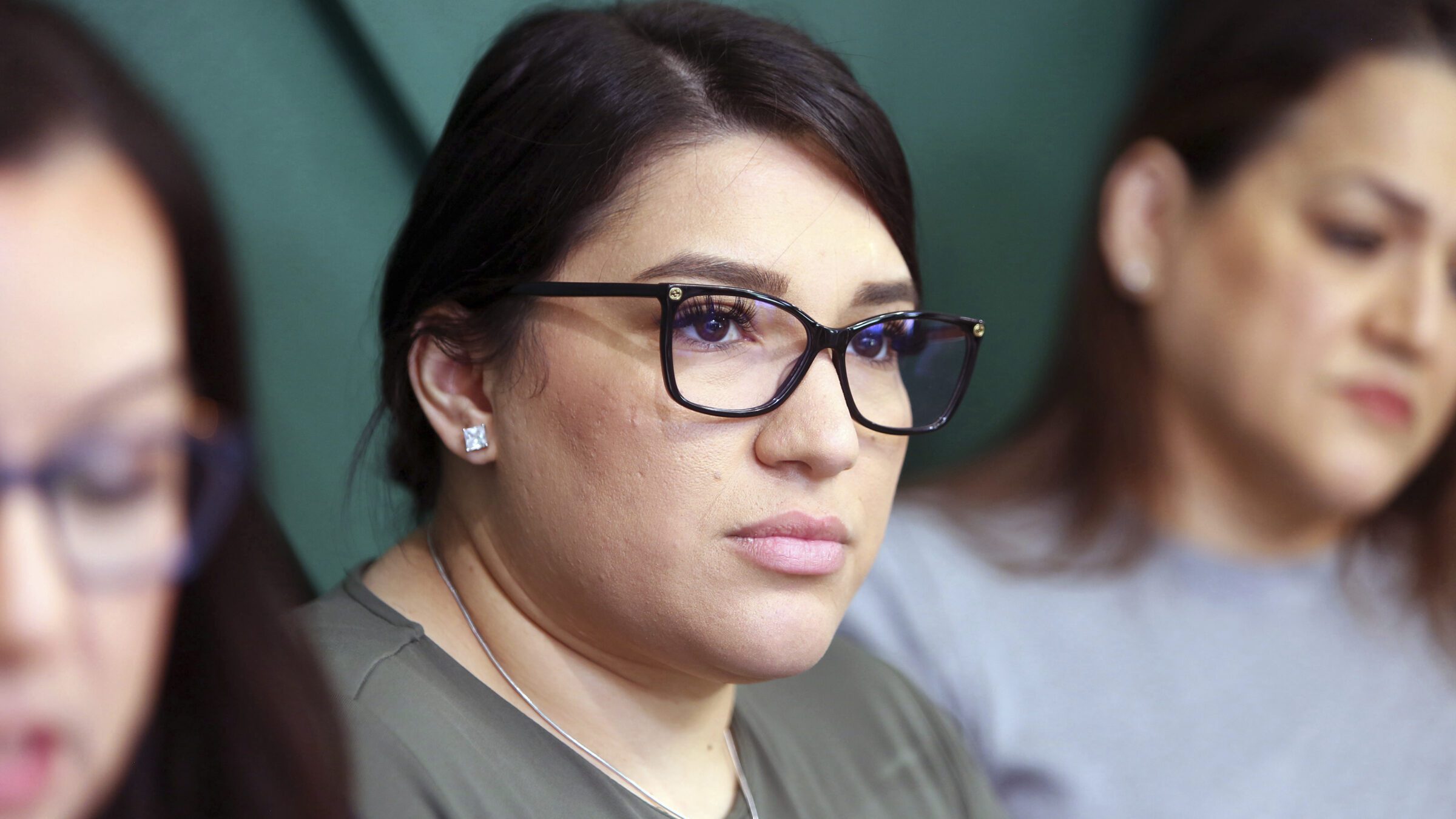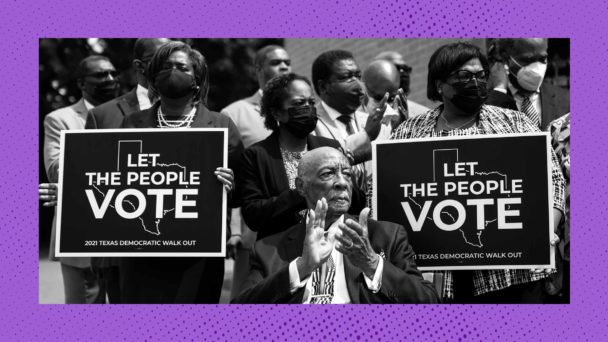In 2022, a Texas district attorney announced and then quickly dropped murder charges against a woman who had an abortion. The woman, Lizelle Gonzalez, never should have been arrested, because the Texas penal code exempts women who terminate their own pregnancies from criminal charges. Last week, we learned that the DA had been accused in court filings of paying for his mistress’s abortion years earlier.
This allegation only came to light because Gonzalez filed a federal lawsuit against officials in Starr County, Texas, for violating her civil rights by charging her with murder. Even though the charges were dropped days later, her name and mugshot became international news; she’s suing for $1 million in damages.
The defendants—district attorney Gocha Ramirez, assistant district attorney Alexandria Barrera, and sheriff Rene Fuentes—have been trying to dismiss the lawsuit, arguing that they have either absolute or qualified immunity for their actions taken as public officials. But last year, Trump-appointed federal district court judge Drew Tipton disagreed, and said the case could move forward. In the meantime, Gonzalez’s lawyers have been conducting discovery related to the arrest and investigation, which is how they learned that Ramirez allegedly paid for an abortion in the late 1990s.
Gonzalez’s legal team is principally arguing that prosecutors had a duty to know the exceptions in the homicide statute before presenting the case to a grand jury. But they are also contending that Ramirez’s past conduct suggests that he personally knew that abortion is not homicide, since (presumably) he would have been reluctant to pay for an abortion if he understood it to be murder.
This case started when Gonzalez used misoprostol, a safe and effective medication, to end a pregnancy in January 2022. She went to a hospital with bleeding and told hospital staff about the pills.
Texas women who have abortions have never been subject to criminal penalties. Texas law prohibited physicians from providing abortions after six weeks of pregnancy, and Senate Bill 8, the anti-choice “bounty hunter” law that Texas Republicans passed in 2021, was only enforceable via civil lawsuits, not criminal charges. Even so, the hospital called police, who passed the case to the sheriff’s office, which opened an investigation and sought guidance from the DA’s office.
The Texas state bar disciplined Ramirez in early 2024 for allowing his office to file the murder charge and, in a settlement, Ramirez agreed to pay a $1,250 fine and have his license held in a probated suspension for one year.
Pointing out conservative hypocrisy on abortion doesn’t typically lead politicians to change their policy positions (or to resign), so I will not waste my breath. But other information unearthed in discovery—shocking admissions from investigators that, if given the chance, they would handle future cases the same way—underscores how much power police and sheriffs have to ruin people’s lives by manipulating the legal process. Then, all too often, these same officials can run to court and argue that the Supreme Court’s immunity doctrines shield them from responsibility.

Lizelle Gonzalez (Joel Martinez/The Monitor via AP)
Despite the uproar over the charges and the disciplinary action against Ramirez, multiple people involved in the case have suggested to Gonzalez’s lawyers that they wouldn’t do much of anything differently. Fuentes, the sheriff, said in a June deposition that his office did not hold any staff meetings about the case, nor did it update any procedures or policies regarding abortion investigations after the charges were dismissed.
One of Gonzalez’s lawyers asked Sergeant Rafael Aguirre, an investigator in the sheriff’s office, if he would proceed with an investigation if a similar case were to come before him today. “Yes, it would be the same exact steps: investigate, accumulate, obtain, and submit for grand jury review,” Aguirre said. He claimed to have read the state homicide statute early in the Gonzalez investigation, and believed that it was a homicide case because “there was a death of an individual.” Again, though: Gonzalez told hospital staff she induced her own abortion, a fact that is in the police report, and that exempts her from criminal investigation under Texas law. While Aguirre said he read the statute, it’s unclear if he read all the way to the end.
Somehow, Aguirre’s performance is better than that of another sheriff’s office employee, Lenard Fuentes, who said in his May deposition that he still had not read the penal code on homicide. Again, Gonzalez’s lawyer asked whether, if a hospital reported a self-induced abortion, he would still present such a case to the DA’s office for possible charges. “Yes, because I have not read the law,” Fuentes said. “I don’t know what the law states right now.”
The lawyer then showed Fuentes the relevant section of the homicide code that explicitly exempts pregnant women, and asked again. He said yes and explained his reasoning: “To make sure—you know, in a case like—like this, it would always be good to get a second opinion.”
In a sense, these officials are being held accountable because they’re being sued, and their statements about a perverse investigation are now public record. It does make a person wonder how many members of law enforcement across the country are having completely private discussions in which they vow to enforce the laws as they desire.
In another recent abortion criminalization case, a Pennsylvania mother was accused of purchasing abortion pills for her daughter and burying the remains of a nonviable fetus in their backyard. Prosecutors frankly seemed bummed that they didn’t think a murder charge would stick: The Lancaster County District Attorney office said in a press release that “a homicide charge could only be supported if the Commonwealth could prove that the baby was born alive, but in this case, the Commonwealth would be unable to present any forensic testimony that the baby was born alive due to the gestational age and primarily because the corpse only consisted of skeletal remains.” The implication here is that, if the circumstances had been slightly different, the DA would have hit them with murder charges, just like their counterparts in Texas had done. Instead, they charged the pair with concealing the death of a child even though a fetus is not a child.
Police, sheriffs, and prosecutors have incredible amounts of power when it comes to which cases to pursue, what charges to file, and even what plea deals to offer. People in these offices claim they exercise this discretion to keep the public safe. But as these incidents show, some members of law enforcement can’t be bothered to learn relevant statutes, and choose instead to abuse their power to harass women and abortion seekers—even when those people are explicitly protected by state law. That’s not keeping people safe—that’s weaponizing your office to punish people who you think deserve it.






